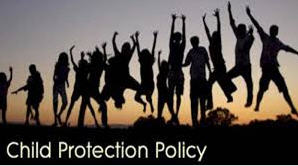
It is Croquet Association policy for all clubs to have a Child Protection Policy
Llandaff Croquet Club's Child Protection Co-Ordinator is:
To be Confirmed shortly.
Please contact him with any queries.
Note that the 1989 Children's Act defines children as persons of less than 18 years of age This policy also includes any vulnerable adults unable to take full care of themselves.
(1) Policy Statement
- The child's welfare is paramount and this organization is committed to provide a safe place for children.
- All children have the right to protection from abuse.
- All suspicions and allegations of inappropriate behaviour will be dealt with.
- The Club Member with responsibility for Child Protection is Campbell Smart
(2) Recognising Abuse
Child abuse is a term used to describe ways in which children are harmed, usually by adults. How to Recognise if a Child is Being Abused
- Although a child may be displaying some or all of these signs, it does not necessarily mean the child is being abused.
- It is not always easy to spot when children have been abused. However, typical symptoms would include:
- Unexplained or suspicious injuries
- Sexually explicit language or actions
- A sudden change in behaviour
- The child describes an abusive act
- The child has a general distrust and avoidance of adults
- An unreasonable reaction to normal physical contact
- Bullying may be carried out by adults or by other children:
- Bullying is deliberately hurtful behaviour usually repeated over a period of time
- Any child can be a victim of bullying
- More usual victims are shy, sensitive, anxious and insecure
- Mental Cruelty, when children are:
- Taunted or unnecessarily shouted at
- Subjected to undue criticism
- Put under unreasonable pressure to perform
- Sexual abuse, e.g
- Unlawful intercourse
- Inappropriate touching
- Taking pornographic photographs
- Neglect includes situations in which adults:
- Consistently leave children unsupervised
- Fail to ensure children are safe or expose them to unnecessary risk of injury
- Physical abuse occurs where adults or other children:
- Physically hurt or injure children
- Give children noxious substances (e.g. alcohol/drugs)
(3) Security of Members
- All those who have or are likely to have significant contact with under-18s will be subject to scrutiny. Such persons must provide to the club's Child Protection Co-ordinator:
- a statement indicating whether or not they have any conviction for criminal offences against children;
- information about their past careers or experience so that it can be established independently if there has been any conviction for criminal offences against children;
- their consent to checks being made with the police and social services.
(4) Prevention of Abuse
- This section offers advice aimed at protecting children from abuse and members from false allegations.
- The club will point out to parents of under-18s who take part in club activities that the club will take every possible care of children but they cannot be deemed to be in loco parentis in respect of children using club facilities.
- Good practice guide:
- Opportunities for abuse can be minimised and members can be protected against allegations, by the use of good practice.2. You should never -
- Except for essential training purposes, minimise time spent alone with children.
- Do not take children alone in a car
- Do not take children to your home
- Where these situations are unavoidable ensure they only occur with the authority of the child's parents or a responsible person within the club
- Allow children to use inappropriate language
- Make suggestive comments to a child
- Fail to act upon allegations made by a child
- Do things of a personal nature for children
- Engage in physical or sexually provocative games
- Engage in inappropriate touching
(5) What to do if there are allegations of abuse
- Where there is an allegation of abuse against a member, there may be three types of investigation:
- A criminal investigation (police)
- A child protection investigation (social services)
- A disciplinary or misconduct investigation (club/CA)
(6) Action if a child complains she/he is being abused
- Always:
- Stay calm - ensure the child is safe and feels secure
- Tell the child you are taking the complaint seriously
- Be honest; explain you will have to tell somebody else, emphasising that this will be on a need to know basis
- Document what the child has said as soon as possible
- Never:
- Rush into actions
- Make promises you cannot keep
- Ask inappropriate questions
- Take sole responsibility
- Why should I intervene?
- Taking the correct action about abuse is never easy
- You may be upset about what the child has said or you may worry about the consequences of your actions
- One thing is certain: you cannot ignore abuse
- The effects of abuse on children can be devastating
- Recording information
- Record basic information
- Do not start an investigation
- Remember that unnecessary interviews with a child may prejudice a police enquiry
- Consider environment carefully if recording information
- Ensure another adult is present
- Avoid touching the child.

